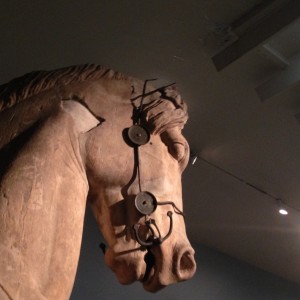 My girls decided to save for a horse. My wife knew that even a ‘free horse’ costs a fortune to feed and medicate. There would be no horses.
My girls decided to save for a horse. My wife knew that even a ‘free horse’ costs a fortune to feed and medicate. There would be no horses.
But the girls persisted. They pooled their money.
“…from each according to what she could give, to each according to her need.”
The communal need demanded 100% sacrifice. Each girl contributed all her savings to claim a piece of the horse.
Their dedication broke our hearts. We got 2 rescue horses for ‘free’, and collectivism won a better life for little farmers.
No question, collective effort multiplies effect. Individualism and self-sufficiency did not create the Duomo or Notre Dame.
In the 1950s, Saskatchewan farmers took barn-raising collectivism and applied it to medical care. Like building a new barn, they knew they had to work together or risk bankruptcy from medical disaster. So, they pooled their resources to provide for other hard working farmers who would do the same for them.
But instead of applying what they knew from building barns, they listened to bureaucrats and politicians. Politicians hired ‘experts’ from the British National Health System.
Saskatchewan farmers took a great idea – working together – and gave control to ideological socialists. Unlike local barn-raising efforts, they created a bloated, state-run system without choice.
British healthcare soon changed. Britians now have choice. The NHS has to prove it can provide at least a shadow of the quality and service available to private payers.
It’s like the Saskatchewan farmers built a commune they could not get out of, the only shop in town. Farmers created one barn-building monopoly and handed over control to city people who never build barns. The city people now dictate how, when and where barns should be built.
Barn-raising rests on collective effort by like-minded people tackling rare events that individuals cannot manage alone. Socialized medicine took collective effort and changed it into state-building by bureaucrats.
We need to return Medicare to its roots in collective effort for rare events. We need to give citizens choice – not for the sake of choice – but to drive Medicare providers to offer the best possible quality and service for patients. We need to renovate Medicare to remind us that it started out for patients, not itself. Until we do, politicians will tax and spend, increasing bureaucracy to buy the silence of taxpayers and providers.
The collective effort behind my daughters’ horse fund and farmers’ barn-raising is good and attractive. Medicare capitalizes on that goodness but hides that it cares more about budgets and policy than patient care.
